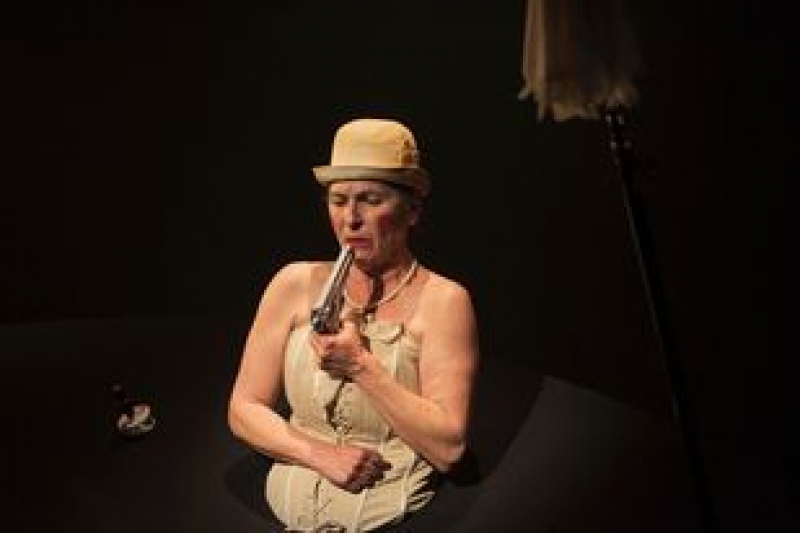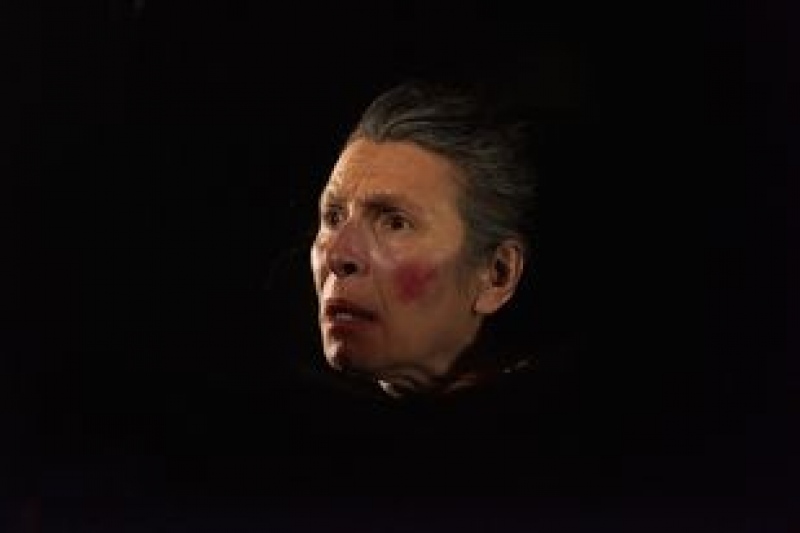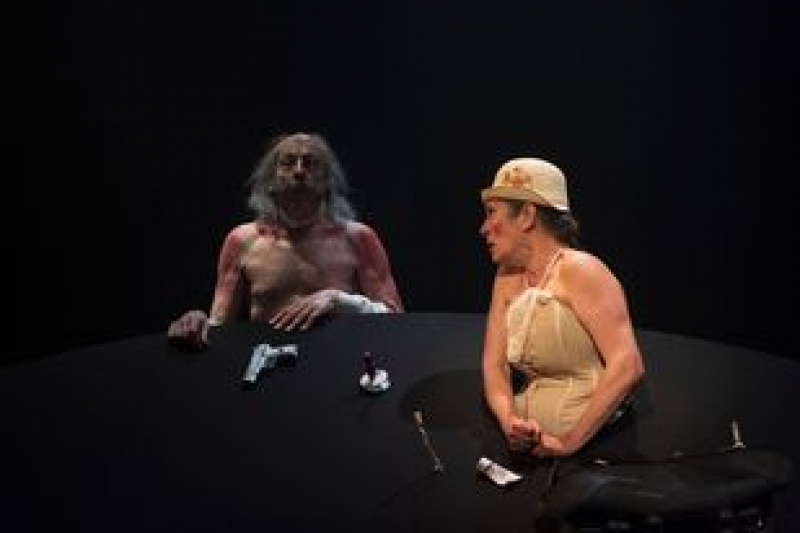BECKETT PROGRAM “OH HAPPY DAYS”
BECKETT PROGRAM “OH HAPPY DAYS”
75min.
Director: Margarita Mladenova
Translation: Antonia Parcheva
Scenography: Nikola Toromanov
Composer: Hristo Namliev
Photographer: Yana Lozeva
Performers: Svetlana Yancheva, Rashko Mladenov
Translation: Antonia Parcheva
Scenography: Nikola Toromanov
Composer: Hristo Namliev
Photographer: Yana Lozeva
Performers: Svetlana Yancheva, Rashko Mladenov
BECKETT PROGRAM “OH HAPPY DAYS”
by Samuel Beckett
Director: Margarita Mladenova
Translation: Antonia Parcheva
Scenography: Nikola Toromanov
Composer: Hristo Namliev
Photographer: Yana Lozeva
Actors: Svetlana Yancheva, Rashko Mladenov
...AND THE DAY DOESN'T END...
All the lofty dreams of the 20th century theater - from Antonin Artaud's yearning for the "destruction of appearances" to Peter Brook's "total theater" to Heiner Müller's "play with realities as subversion" - are embodied, happened in the dramaturgy of Samuel Beckett . His poetic "theatre machines" - both humans and fallen angels, trapped in their daily traps - buried in the earth; living in garbage cans or in cylinders - are a replica of the martyrs of Dante's "hell". Only punished without sin. Punished to live.
Beckett's theater can be called a cruel theater, a theater of the inevitable. Theater for the loser, "thrown" in existence, doomed to "eternal today".
Man, taken in his pure identity with the unanswered questions, the inflamed consciousness, powerless to untie the insoluble knots between his passing life and the all-pervading death. The things and the nothing.
The mouth as if gone mad, the language as a response to the absurd human being, broken by pauses during which it is seen - what?!
Pain as modus vivendi; as salvation from emptiness. The other as the only support.
Among the gallery of Beckett's clowns, a special place is occupied by the two "lucky ones" - Winnie and Willy.
Similar to the universal soul in Chekhov's “The Seagull”, Winnie doesn’t know "who she is and what awaits her," but she has embraced "the whole life, the whole life, the whole life" and bears its heavy blessing as a miracle to which she is responsible. Like a precious cup overflowing, not a drop of which should be wasted. No whine, no grunting.
There is hope in the hidden meaning of just you – being alive. Because "it could have been the eternal cold" without you.
Through her brave "something always remains" shines Beckett's great pity for the anonymous human being and his wonder at what "helps us live with our wounds." Nevertheless. So far.
Margarita Mladenova
by Samuel Beckett
Director: Margarita Mladenova
Translation: Antonia Parcheva
Scenography: Nikola Toromanov
Composer: Hristo Namliev
Photographer: Yana Lozeva
Actors: Svetlana Yancheva, Rashko Mladenov
...AND THE DAY DOESN'T END...
All the lofty dreams of the 20th century theater - from Antonin Artaud's yearning for the "destruction of appearances" to Peter Brook's "total theater" to Heiner Müller's "play with realities as subversion" - are embodied, happened in the dramaturgy of Samuel Beckett . His poetic "theatre machines" - both humans and fallen angels, trapped in their daily traps - buried in the earth; living in garbage cans or in cylinders - are a replica of the martyrs of Dante's "hell". Only punished without sin. Punished to live.
Beckett's theater can be called a cruel theater, a theater of the inevitable. Theater for the loser, "thrown" in existence, doomed to "eternal today".
Man, taken in his pure identity with the unanswered questions, the inflamed consciousness, powerless to untie the insoluble knots between his passing life and the all-pervading death. The things and the nothing.
The mouth as if gone mad, the language as a response to the absurd human being, broken by pauses during which it is seen - what?!
Pain as modus vivendi; as salvation from emptiness. The other as the only support.
Among the gallery of Beckett's clowns, a special place is occupied by the two "lucky ones" - Winnie and Willy.
Similar to the universal soul in Chekhov's “The Seagull”, Winnie doesn’t know "who she is and what awaits her," but she has embraced "the whole life, the whole life, the whole life" and bears its heavy blessing as a miracle to which she is responsible. Like a precious cup overflowing, not a drop of which should be wasted. No whine, no grunting.
There is hope in the hidden meaning of just you – being alive. Because "it could have been the eternal cold" without you.
Through her brave "something always remains" shines Beckett's great pity for the anonymous human being and his wonder at what "helps us live with our wounds." Nevertheless. So far.
Margarita Mladenova




